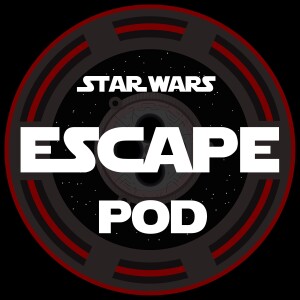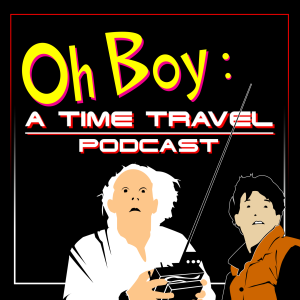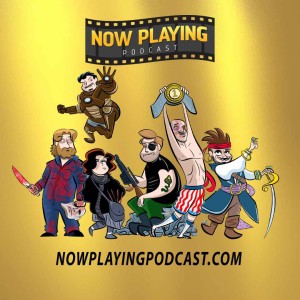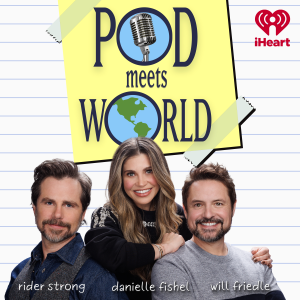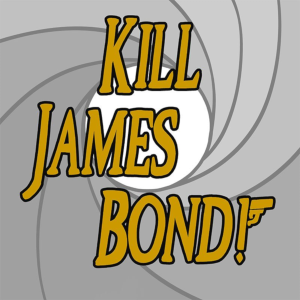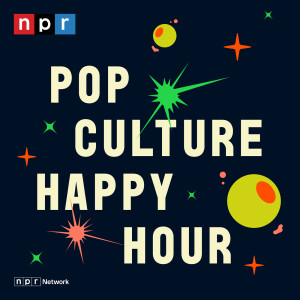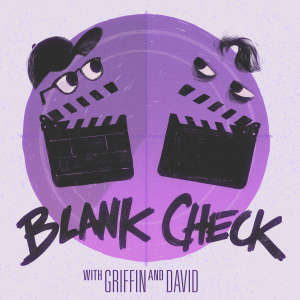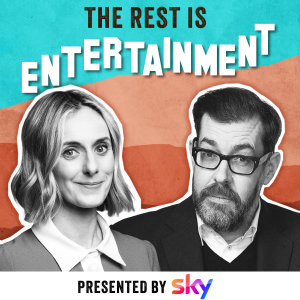

Warrior (2011): Full Movie Recap, Iconic Dialogues, and Unforgettable Facts
Summary
"Warrior" (2011) is a gripping sports drama directed by Gavin O'Connor that delves into the complexities of family relationships, personal redemption, and the intense world of mixed martial arts. The film primarily follows the lives of two estranged brothers, Tommy Conlon (Tom Hardy) and Brendan Conlon (Joel Edgerton), who are both on a path to compete in a major MMA tournament called Sparta. Tommy, a former Marine with a troubled past, returns home to Pittsburgh and seeks out his father, Paddy Conlon (Nick Nolte), a recovering alcoholic who once trained him to be a wrestler. Tommy's return is not a reunion but rather a strategic move to prepare for the tournament, driven by a desire to win the prize money to support the widow of his fallen comrade. The tension between Tommy and Paddy is palpable, characterized by resentment and unhealed wounds from a turbulent family history.
Tommy's brother, Brendan, is a high school physics teacher struggling to make ends meet for his family. Facing foreclosure on his home, Brendan turns to his former passion, mixed martial arts, to earn extra income by participating in underground fights. When the school board discovers his extracurricular activities, Brendan is suspended, forcing him to fully commit to competing in the Sparta tournament as his last hope to save his family's financial situation. Unlike Tommy, Brendan is driven by love and responsibility rather than anger and vengeance. His wife, Tess (Jennifer Morrison), is supportive yet anxious about the physical risks involved. The brothers’ different motivations and backgrounds set the stage for a dramatic and emotional collision that underscores the film's central themes of redemption and reconciliation.
The film intricately weaves the stories of both brothers leading up to the tournament, with each brother facing personal demons and external challenges. Tommy's raw, aggressive fighting style and mysterious background quickly make him a sensation in the MMA world, garnering media attention due to his exceptional skill and brutal efficiency in the ring. On the other hand, Brendan's journey is portrayed with a gritty realism, highlighting the physical and psychological toll of the sport, as well as the sacrifices he makes for his family. The contrast between Tommy's solitary, angry existence and Brendan's familial, yet desperate struggle creates a compelling narrative tension. Both brothers carry the burden of their shared past, yet their paths to redemption differ vastly, leading to an inevitable confrontation that serves as the film’s emotional core.
The Sparta tournament itself is an intense, visceral showcase of martial arts prowess and the culmination of the brothers' personal journeys. The film captures the raw energy and emotional stakes of the fights, with each match serving as a metaphor for the internal battles both brothers face. Brendan's underdog status and strategic approach to fighting make him a crowd favorite, while Tommy's sheer power and enigmatic presence captivate audiences and elevate the stakes. The narrative builds to a climactic showdown between the two brothers, a fight that is as much about resolving their personal grievances as it is about the championship. The fight is a breathtaking blend of choreography and emotion, highlighting not just physical endurance but also the deep-seated emotional conflicts that have driven the brothers apart.
In the end, "Warrior" delivers a powerful resolution that is both cathartic and poignant. The final fight between Tommy and Brendan is not just about winning the tournament; it is about healing the wounds of the past and finding a path forward. As Brendan emerges victorious, he reconciles with Tommy, who finally surrenders both physically and emotionally, allowing the brothers to begin mending their fractured relationship. Paddy's presence and his journey toward redemption add an additional layer of depth to the film, emphasizing themes of forgiveness and the possibility of change. "Warrior" is not merely a sports drama; it is a deeply human story about the complexities of love, family, and the enduring spirit of perseverance. The film's compelling performances, particularly by Tom Hardy, Joel Edgerton, and Nick Nolte, anchor its emotional gravity, making "Warrior" a memorable and impactful cinematic experience.
Dialogues"I'm sorry, Tommy."
This quote highlights the theme of reconciliation and forgiveness. It shows a moment of vulnerability and the desire to mend broken relationships, emphasizing the importance of humility and making amends.
"I love you, Tommy."This simple yet poignant declaration underscores the power of love and familial bonds, even amidst conflict and estrangement. It serves as a reminder of the enduring nature of family ties.
"You don't knock him out, you lose the fight."This quote reflects the high-stakes nature of the competition and the harsh reality of the fight world, paralleling life's challenges where sometimes winning requires an all-or-nothing approach.
"It's not as simple as that."This line addresses the complexity of personal relationships and life decisions, reminding us that life's situations are often nuanced and require deeper understanding beyond surface-level judgments.
"Why are we here?"This existential question invites introspection about one's purpose and motivations, both in life and in specific situations, underscoring the importance of clarity and intention in our actions.
"We're brothers, man."This quote emphasizes the unbreakable bond and shared history between siblings, highlighting themes of loyalty, shared responsibility, and unconditional support.
"You never had any interest in underdog stories?"This line speaks to the universal appeal of underdog narratives, resonating with the human spirit's desire to overcome adversity and achieve against the odds, a common life philosophy of resilience.
"You can do this, okay?"This encouraging statement embodies the power of belief and support from others, reinforcing the idea that confidence and external encouragement can be pivotal in overcoming challenges.
"God doesn't care about you, man."A stark commentary on faith and divine intervention, this quote invites reflection on the role of spirituality in personal struggles and the notion of self-reliance.
"This is impossible."This statement captures the feeling of insurmountable odds, yet within the context of the film, it also challenges viewers to consider that what seems impossible can often be achieved with determination and effort.
"You owe me."Explores themes of debt and obligation, both financially and emotionally, emphasizing the complexities of human relationships and the impact of past actions on current dynamics.
"I was proud of you."This expression of pride reflects the importance of validation and recognition from loved ones, highlighting how parental approval or acknowledgment can significantly impact self-worth and motivation.
"I have a family to protect."This quote underscores the theme of responsibility and the lengths one will go to safeguard loved ones, reflecting the universal priority of family well-being over personal desires.
"I'm fighting for my life."This statement conveys the desperation and urgency that often accompany life's critical moments, serving as a metaphor for the personal battles each individual faces.
"Just tap, Tommy."This phrase can be seen as a metaphor for surrender and acceptance, suggesting that sometimes yielding is necessary for survival or to preserve future opportunities.
"We're gonna need a miracle."This line emphasizes hope in dire situations, resonating with the life philosophy that faith and optimism can sustain us during difficult times, even when logic suggests otherwise.
"I don't know how to do this."This admission of uncertainty is a relatable moment of vulnerability, reminding us of the importance of seeking guidance and learning through life's unpredictable challenges.
"Why didn't you tell me?"This question reflects themes of communication and transparency, highlighting the significance of openness and honesty in building trustful relationships.
"Be careful, Brendan."A reminder of caution and awareness, this quote underscores the importance of mindfulness and prudence in both physical and metaphorical battles in life.
"He's my brother."This affirmation of kinship reinforces the enduring bonds of family, regardless of conflict, emphasizing loyalty and the intrinsic connection shared among siblings.
FactsTom Hardy's Intense Preparation
Tom Hardy underwent a rigorous training regimen to prepare for his role as Tommy Conlon, gaining approximately 28 pounds of muscle mass. His routine included boxing, kickboxing, and Jiu-Jitsu.
Joel Edgerton's InjuryJoel Edgerton, who played Brendan Conlon, sustained a torn MCL during filming. Despite the injury, he continued to shoot his scenes, demonstrating his dedication to the role.
Real-Life MMA Fighters FeaturedSeveral real-life MMA fighters appeared in the film, including Anthony "Rumble" Johnson and Nate Marquardt, adding authenticity to the fight scenes.
Nick Nolte's Oscar NominationNick Nolte, who played Paddy Conlon, received an Academy Award nomination for Best Supporting Actor. It was his third Oscar nomination in his career.
Filming Location ChallengesThe film was primarily shot in Pittsburgh, Pennsylvania. The production faced challenges due to weather conditions, with several scenes requiring adjustments to accommodate unexpected rain and cold.
Director Gavin O'Connor's CameoGavin O'Connor, the film's director, makes a cameo as the fight promoter J.J. Riley, showcasing his involvement in multiple aspects of the film's production.
Inspiration from Classic LiteratureThe film's storyline has been compared to the themes found in the biblical story of Cain and Abel, exploring sibling rivalry and redemption.
Unique Filming TechniquesTo capture the raw intensity of the fight scenes, director Gavin O'Connor used multiple cameras simultaneously, allowing actors to perform without interruption and capturing genuine reactions.
Soundtrack by The NationalThe song "About Today" by The National, which plays during the climactic fight scene, became iconic for its emotional resonance and connection to the film's themes.
Authentic Fight ChoreographyChoreographer J.J. Perry worked closely with the actors to create realistic and dynamic fight sequences, drawing on his extensive experience in martial arts and stunt coordination.
Trivia
The 2011 film "Warrior," directed by Gavin O'Connor, is a gripping tale of family, redemption, and the raw emotional power of mixed martial arts (MMA). One of the lesser-known facts about the film is the intense preparation the lead actors went through to authentically portray their characters. Tom Hardy and Joel Edgerton, who played brothers facing off in a high-stakes MMA tournament, underwent rigorous training regimes for several months. Hardy gained nearly 30 pounds of muscle, transforming his physique to convincingly appear as a hardened fighter. Edgerton, on the other hand, not only learned the moves but also dealt with a series of injuries during production, including a torn MCL, which he sustained during a sparring session. The dedication of the actors is evident on screen, contributing significantly to the film's raw and realistic portrayal of the sport.
Behind the scenes, director Gavin O'Connor brought in real-life MMA fighters and trainers to ensure authenticity in the fight sequences. Notably, former UFC fighter Anthony "Rumble" Johnson was cast in a small role, and current UFC Hall of Famer Rashad Evans made a cameo appearance. O'Connor's commitment to realism extended beyond the physicality of the sport; he also sought to capture the emotional depth of the characters. The director worked closely with the actors, encouraging them to delve deeply into their characters' backstories. This collaborative effort resulted in emotionally charged performances that resonate with audiences, particularly in the climactic final fight scene, which was filmed over the course of five grueling days.
Adding an intriguing layer to the film, "Warrior" contains several easter eggs that keen-eyed fans might appreciate. One such hidden gem is the homage to classic boxing films, subtly woven into the narrative. The character of Paddy Conlon, played by Nick Nolte, is seen listening to an audiobook of "Moby Dick," which is a nod to the literary themes of obsession and redemption that parallel his own journey. Additionally, the film's soundtrack features a haunting version of "About Today" by The National, a song that underscores the emotional turmoil of the characters and became an unofficial anthem for the film's underlying themes of reconciliation and forgiveness.
Psychologically, "Warrior" delves deeply into the complex dynamics of familial relationships and personal demons. The film explores themes of trauma, addiction, and the yearning for acceptance, making it much more than just a sports drama. Paddy Conlon's struggle with alcoholism and his attempts at redemption offer a poignant look at the effects of addiction on family bonds. The intense rivalry and eventual reconciliation between the two brothers, Tommy and Brendan, highlight the human need for connection and understanding. This psychological depth is what elevates "Warrior" from a standard sports film to a compelling character study that resonates with viewers on multiple levels.
The impact and legacy of "Warrior" can be seen in how it influenced subsequent films within the sports drama genre. Although it was not a massive box office success upon its release, the film received critical acclaim, particularly for the performances of Hardy, Edgerton, and Nolte, the latter earning an Academy Award nomination for Best Supporting Actor. Over time, "Warrior" has gained a cult following, praised for its authentic portrayal of MMA and its heartfelt narrative. The film's influence is evident in the way it set a new standard for realism in sports films, inspiring future filmmakers to focus on character-driven stories that resonate emotionally with audiences.
In conclusion, "Warrior" is a film that transcends the typical boundaries of its genre, offering audiences a powerful blend of action, emotion, and authenticity. The meticulous attention to detail in the fight choreography, combined with the actors' dedication to their roles, creates a visceral experience that is both thrilling and emotionally moving. The film's exploration of complex themes such as forgiveness, redemption, and the enduring strength of family ties ensures its place as a revered classic in the sports drama canon. As "Warrior" continues to inspire audiences and filmmakers alike, it stands as a testament to the power of storytelling and the enduring impact of cinema.
More Episodes
All Episodes>>Create Your Podcast In Minutes
- Full-featured podcast site
- Unlimited storage and bandwidth
- Comprehensive podcast stats
- Distribute to Apple Podcasts, Spotify, and more
- Make money with your podcast
